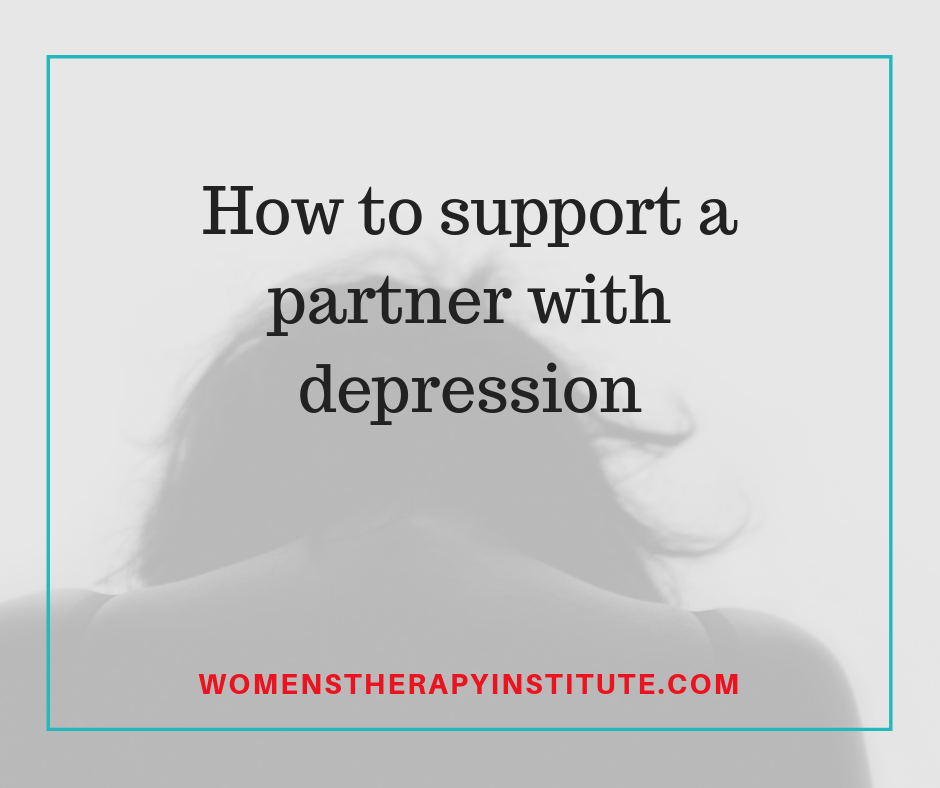
How to support a partner with depression
Being in a relationship with someone who struggles with depression can be difficult. It is hard to know what you can do to help and you constantly worry about saying or doing the wrong thing. It is also difficult to know if what you are doing is helping, causing you to get discouraged and feel helpless.
Depression is a tricky thing. It is an internal struggle, a mental illness that ebbs and flows. People who struggle from depression have good days and bad days just like everyone else. Hence, they need love and support from those around them. They need people with knowledge and understanding who can give them grace during bad times
That being said, as in any relationship, you must take care of yourself too. Make sure you take time to breathe, relax, decompress, and practice self-care. Supporting someone who is depressed can take a toll on you, as a partner, as well. Therefore, take the time to recognize your needs.
Here are some ways you can help a partner with depression:
1.) Learn about depression
It is hard to help someone who is struggling with their mental health if you don’t have some knowledge. People who are depressed often have angry outbursts, moments of withdrawal, days when they want to stay in bed all day, bouts of crying, and unexplained sadness. If you aren’t aware of the symptoms then you, as a partner, might get angry, take things personally, or feel hurt. Understanding and making sure you also have a support system is important.
2.) Just be there
Sometimes caring for another is as simple as sitting with them, giving them a hug, rubbing their back, checking on them, etc. You don’t have to do any huge acts of kindness. It is more about showing your support by being present. Letting them know you care about them. Say things like “we will get through this together.”
3.) Encourage treatment
Often those struggling with depression get so down on themselves that they don’t have the energy or the motivation to get help. They might not even know why they are feeling this way, or notice changes in their behavior. As a partner, you can be a voice of reason. You can encourage them to get help, maybe even schedule and take them to the first visit. Tell them what you have noticed and explain to them you want them to feel better. You can assist in the research of mental health options. Let them know you are also on their team.
4.) Create a supportive home environment
It is important to recognize that depression is no one’s fault. It is not yours and it is not your partner’s fault for being depressed.
- Create a healing environment in your household.
- Make plans to exercise together.
- Choose a healthy diet plan to help you both feel your best.
- Limit access to things like alcohol or drugs.
- Create routines and work together to limit overall stress around the home.
- Make time for counseling appointments.
5.) Positive reinforcement
People who are depressed often feel the worst about themselves. Everything they do is wrong, everything is bad, they feel worthless. Therefore, noticing small improvements and mentioning them to your partner is important. You can say, “I think it is great you got up to workout this morning,” “I am proud of you for making that appointment,” etc.
6.) Set small goals
Depression is overwhelming and overcoming symptoms can feel like a mountain to climb. Instead of looking at the big picture, focus on the day-to-day. Set small, manageable goals. Maybe it is taking a walk a few nights a week after work, going to bed by a certain time each day, making and keeping an appointment, or even getting out of bed and doing one thing — like making a meal, taking a shower, something attainable.
7.) Know suicide warning signs
It is hard to think about but suicide is a very real result of depression for some people. You must acknowledge the risk and keep your eyes peeled for signs. You may talk to your partner about how they feel, is this something they think about? Keep notice of them making plans, talking about death, giving things away, or finding a sudden calm, see other warning signs here.
Conclusion
Supporting someone with depression can be hard on the partner. Make sure, as mentioned above, to take care of yourself as well. It’s impossible for you to carry all the weight but you can show those you love that you are there for them. Seeking help from a licensed professional counselor can be helpful for both yourself and your partner. Don’t hesitate to get help. You don’t have to do this alone.
